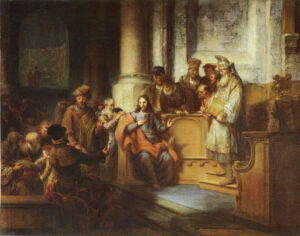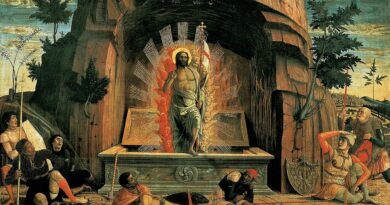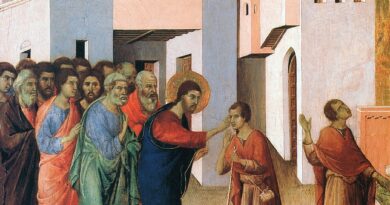Tenth Sunday of Ordinary Time/B
Massimo Palombella

In today’s Gospel (Mk 3:20-35) Jesus states that ‘whoever blasphemes against the Holy Spirit will not have forgiveness for ever’.
Beyond a linguistic code used by Jesus, ‘blasphemy against the Holy Spirit’ is a subtle temptation that undermines our lives. Indeed, we very easily risk building an architecture of our existence where God fundamentally does not exist. We talk about God, we frequent the ‘things of God’, we have received an education where the name of God is present, but our choices and judgements risk being implemented as if God did not exist.
In essence, we may be in the situation where our every discernment has as its goal our well-being, our peace of mind, the increase of our wealth, the intelligent organisation of every work and family activity, but, in all of this, God is the great absent or is even ‘invented’ and placed in an intelligent architecture where He does not substantially interfere with our plans.
God can exist as long as he does not disturb us, is not allowed to express himself, to say anything or even to ask us anything. God is not an interlocutor and must not allow himself to be one. There is us, our plans, our values, our choices… all this being unquestionable and absolute, exactly as the real God should be in our lives for our true good.
This silent obstinacy, in the long run, confines us to an unreal, sterile world of little things to defend where apparently there is everything except ‘life in abundance’.
The Introit of today’s celebration is taken from Psalm 26 (Ps 26, 1. 2. 3) with the following text:
‘Dominus illuminatio mea et salus mea: quem timebo?
Dominus defensor vitae meae: a quo trepidabo?
Qui tribulant me inimici mei ipsi infirmati sunt et ceciderunt’
(The Lord is my light and my salvation, whom shall I fear?
The Lord is the protector of my life, of whom shall I be afraid?
My enemies who trouble me have themselves grown weak and have fallen).
The attached music, in Gregorian Chant, is taken from the Graduale Triplex published in Solesmes in 1979. The performance is by the Nova Schola Gregoriana conducted by Alberto Turco.
A blessed Sunday and heartfelt greetings.


